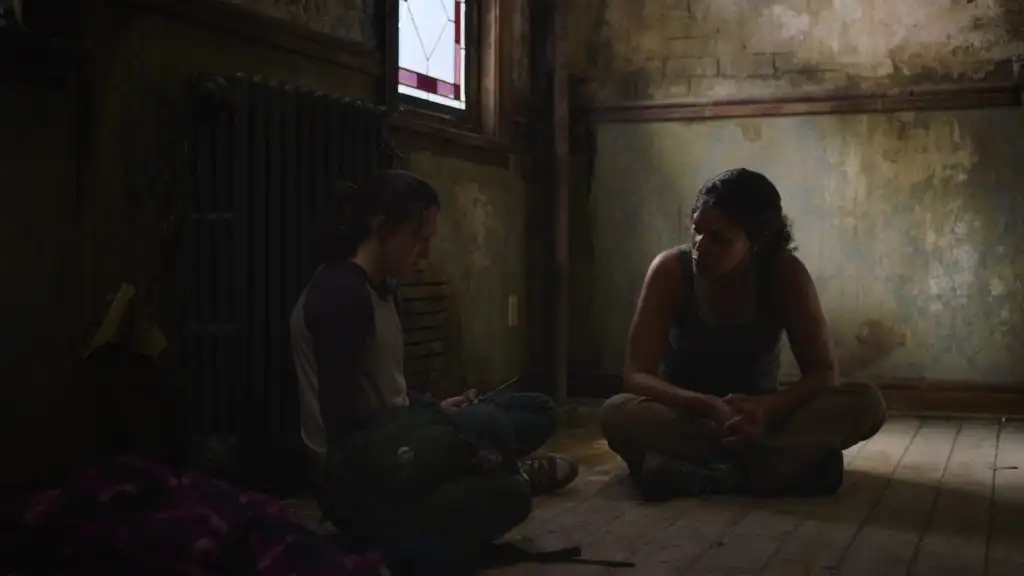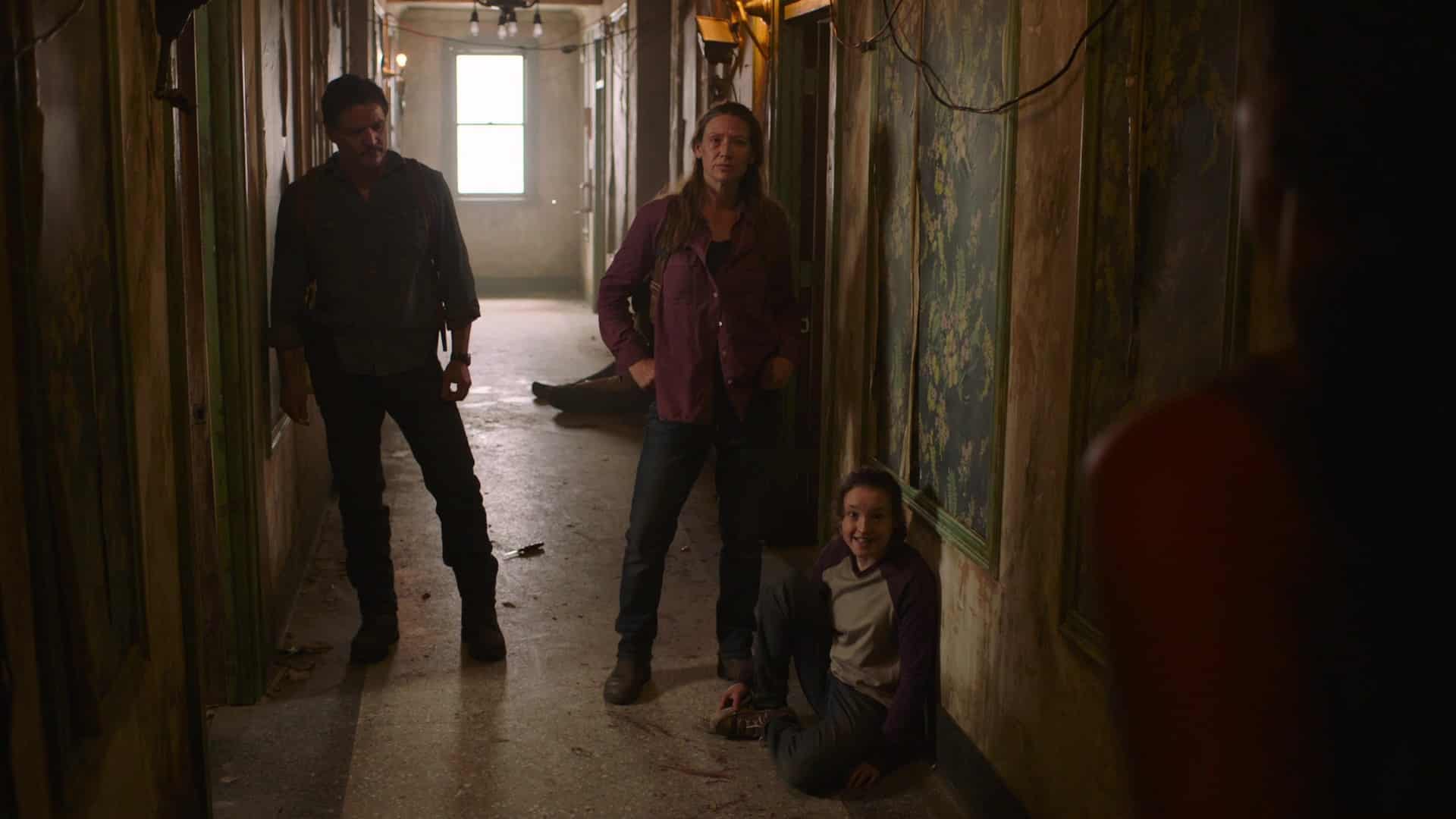By Sean Gallagher
The Last of Us is considered by many fans and critics to be one of the best video game narratives of all time. So needless to say, fans have been both wildly cautious about the adaption of the show from HBO, largely thanks to the video game curse (in which adaptions of popular video games usually bomb, with few exceptions here and there). But there’s also plenty to be excited for. The Last of Us is being realized by some talented individuals, chiefly from showrunner Craig Mazin of Chernobyl fame and Neil Druckmann, director of the game. The show opens up with an extended premiere and introduces audiences to the world. But will HBO break the curse and deliver a quality piece of content? Let’s dive into the first episode, When You’re Lost in the Darkness.
The Last of Us stars Pedro Pascal and Bella Ramsey as Joel and Ellie respectfully and both actors fully embody the spirit and mannerisms of their video game counterparts. As a big fan of the game myself, I felt like Leonardo DiCaprio in Once Upon A Time In Hollywood, constantly pointing things out in my mind that were ripped from the game.
The Last of Us on HBO opens with a TV interview set in the 60s where the hypothetical conversation of what would happen if these fungal infections (that do exist in real life) were to mutate to take over humans. Delivered by John Hannah of The Mummy fame with a little help from Christopher Heyerdahl from Hell on Wheels (also shot in Alberta), I found it a very clever way for the show to deliver some exposition to audiences who may not be familiar with the source material, without beating them over the head with poor writing. A TV interview, decades earlier, frames the situation as a scary what-if back then, but in 2003, where a good half of the almost ninety-minute premiere takes place, that theory is about to become a reality. It gave us pertinent information on the infection while also showcasing that scientists were thinking about this scenario decades prior to the outbreak.
The first episode was directed by showrunner Craig Mazin, best known now for his work on Chernobyl and he did a great job of building up tension. The segment in 2003 is told from the point of view of Sarah, Joel’s daughter. Mazlin opts to use handheld cameras and I found this technique worked to his advantage, as we the audience got to go along for the ride and become an unseen party on the show.

The show straddles the line between being an authentic retelling of the original The Last of Us game while also throwing in additional content or making some changes here and there. We get to see Sarah, Joel and his brother Tommy together at breakfast for instance, something we didn’t see in the game, or Sarah heading into town to fix Joel’s watch. Within these new scenes, we begin to get a sense of dread in the air as first responders race by, fighter jets fly over and the news reporting of bizarre occurrences. The tension was fantastic. Of course, an outbreak of one of those fungal infections did evolve and people began to change. It has the DNA of a zombie story, true, but the infected aren’t undead, just under the control of the virus. It’s more 28 Days Later than Dawn of the Dead.

While the day was about that slow build, the escape once the wire snapped was full-blown anxiety. It borrowed heavily from The Last of Us game, down to some of the camera angles, but the sense of tension and adrenaline was very real, as Tommy drove the others through town in his pickup truck, hundreds of civilians fleeing and being attacked and an airplane crashing into the ground. It was pure chaos and ended with the death of Sarah, an act that will utterly break Joel’s spirit. The whole sequence felt wildly personal and intimate, despite the scope and the larger ramifications.
But Joel is a survivor, for better or for worse and he survives the next twenty years working as a black-market smuggler in a Boston quarantine zone, ruled with a mighty fist by the army. Joel has been on the search for Tommy, with whom he had a falling out a few weeks back over the topic of the Fireflies, a group of rebels (or terrorists, depending on who you ask) fighting the army across the country. This is where Ellie comes in.
Unlike Joel, who knew civilization, Ellie was born after the outbreak happened, so her sensibilities and mannerisms are much different than Joel’s. She’s foul-mouthed, brash, spunky and, as it turns out, immune. Bella Ramsey may not look like Ellie from the games, but she definitely captured the character perfectly. We didn’t get too much screen time with her, but I’m excited for future episodes where her blunt attitude clashes with the more quiet and emotionally walled-off Joel. But this episode was all about Joel and world-building. Pedro had scenes where he didn’t have to say much, but his facial expressions said more than his words ever could. He is a haunted man, a shell of his former self. Society also seems to mirror Joel’s state of being. From dilapidated buildings, martial law and lifestyle choices that make everyone seem morbidly exhausted, everything just looks beaten down, sometimes literally even, as is the case with Tess, Joel’s partner, who recently took a beating from some local thugs.

But as fate would dictate, Joel and Tess are tasked by Marlene, leader of the Boston Fireflies, with smuggling Ellie out of the QZ and bringing her to the old State House. Fun fact, Merle Dandridge portrays Marlene in both the show and the game, the only actor who reprises her role from the original game. In exchange, she’ll offer Joel and Tess a car, fully loaded, which Joel intends on using to find Tommy, who may be MIA or worse. Desperate to help his brother, Joel agrees. Little does he know, at first, but Ellie is immune to the infection, the first known case, which makes her highly valuable, precious and at risk.

I think Mazin and Druckmann have lovingly remade the game for TV. It feels faithful to the source material, down to composer Gustavo Santaolalla coming back for the show, while also adding new content that feels authentic and plausible. The two leads feel like the characters from the game while not being carbon copies of what’s come before. It’s a difficult line to walk, as you don’t want to be derivative or lose the core audience, but I think The Last of Us on HBO is off to a fine start. Also, if you’re looking for something to do after the show, HBO has a neat Last of Us podcast that airs after the show, hosted by Joel’s actor in the games, Troy Baker.

2 thoughts on “The Last of Us: ‘When You’re Lost in the Darkness’ Spoiler Review – ScreenHub Entertainment”